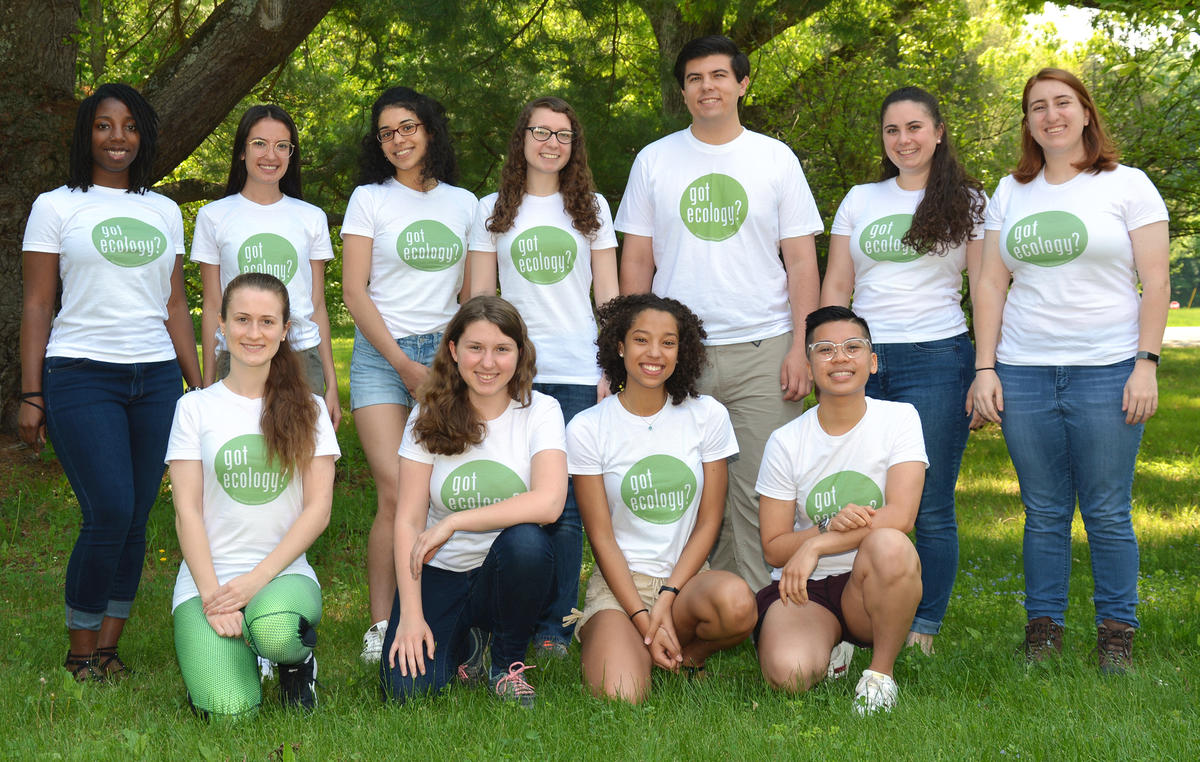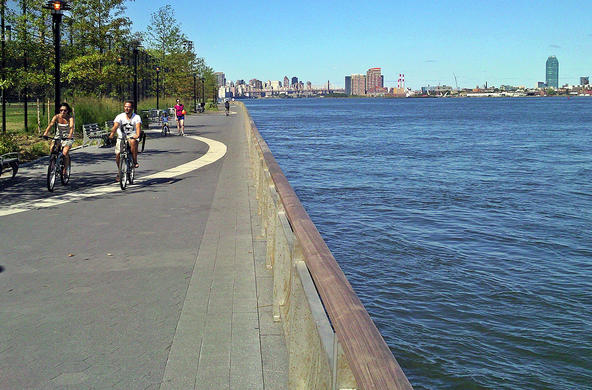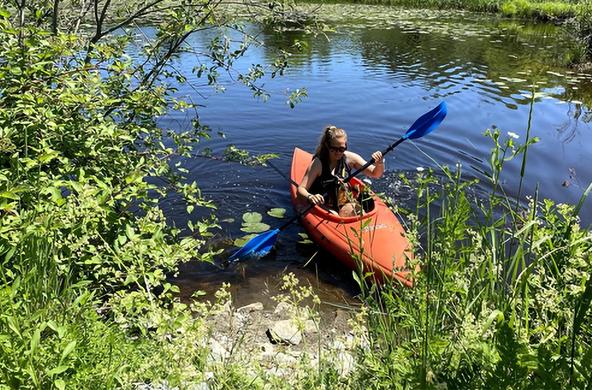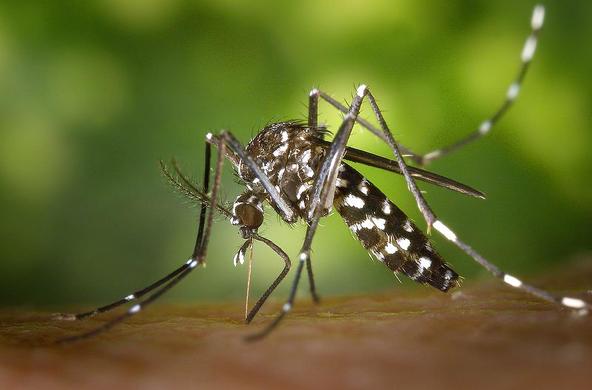
Cary REU Opportunity for Summer 2022
Research Project Description
Global change factors and soil microbial communities. Mentor: Dr. Jane Lucas, Cary Institute.
Soils are the foundation of terrestrial ecosystems, performing a variety of functions that range from supporting agricultural industries, regulating nutrient cycles, and storing most of Earth’s terrestrial carbon. Microbial communities are a particularly important component of soil environments as they are the primary consumers that regulate decomposition and nutrient turnover (Shi 2010, Blankinship and Schimel 2018). However, soil communities and function are at risk because of increased climatic and anthropogenic pressures that are acting on soil ecosystems simultaneously (Montanarella et al. 2016). Many previous studies have examined the effects of individual stressors on soils but there is a need for multi-factor studies that address the dynamic and multidimensional impact of global environmental change (Rillig et al. 2019). Our work will examine how 10 distinct anthropogenic global change factors interact to shape soil communities and their functions. Using a large-scale field experiment and paired lab-based studies, we will examine the following global change factors: warming, water availability, salinity, antibacterials, antifungals, pesticides, surfactants, microplastics, N deposition and heavy metals. The student working on this study will have the opportunity to support the broader project goals, as well as develop their own independent project. The student will gain field- and lab-based experience examining soil nutrient cycling, enzyme activity, plant biomass and invertebrate and microbial communities. This project hopes to provide important insight on how grassland ecosystems may respond to multiple future changes in order to help manage and conserve these important ecosystems.
2022 REU Program Timeline
Pre-program
- Review relevant literature provided by PI and
- Write up specific goals for the summer document
- Pre-program survey
8 weeks from June 1 to July 27 (start and end dates flexible)
- Orientation and introduction to the research (week 1, 2)
- Community building with other Cary students and research interns, attend seminars, participate in lab meetings (all summer)
- Participate in the construction and beginning of Stressed out soils project on Cary campus (weeks 1,2)
- Plan individual research project, presentation of research plans, research proposal (week 3)
- Conduct individual soil incubation experiment (weeks 4-6)
- Data analysis, research paper and presentation preparation (weeks 7-8)
- Final presentation (end of week 8)
- Post-program survey
- Mentoring from Dr. Jane Lucas, the soil microbial communities lab group and the team’s senior lab technician
Post-program
- Continue to work on a possible research paper for peer reviewed publication and/or independent study at school
To apply for the 2022 REU Program
Submit the following to Dr. Alan R. Berkowitz, Cary REU Program Director, at berkowitza@caryinstitute.org by 29 April 2022:
- A letter of application that includes a statement of reasons for wanting to participate and the strengths and assets you would bring to the experience and Institute.
- A resume
- A list of relevant courses and grades received
- Names and contact information for three professional or academic references
Participants in the 2022 REU Program Receive
- Participation stipend of $650 per week for up to 8 weeks ($5,200 total).
- Up to $1000 for research expenses (details to be included in student’s Research Proposal).
- Support from the full Cary community of scientists and educators.
Information about the previous program:
Translational Ecology for Undergraduates
The Cary REU program trains a new generation of environmental scientists to advance and translate ecology - science for the future of the planet - through research, application, communication and education.
Cary REU students design and carry out independent research projects in ecology, with the support of mentors, fellow students and the rich Institute community of scientists and educators. Science and translational ecology skills are built in workshops, seminars, panel discussions and working on short, authentic communication and teaching activities.
Our alumni report that their Cary REU experience was instrumental in their career success, whether it be in academic ecology as professors or research scientists, in environmental management or consulting, in ecology education, or in other fields. Cary REU students contribute to the mission of the Institute through their research, with most writing papers for the Cary Undergraduate Ecology Research Reports online publication, and many co-authoring peer-reviewed articles based on their work.

Program Overview
The Cary Translational Ecology REU program weaves together activities in 3 strands:
Independent Research
Pairs of students will join teams of 2 or more mentors to conduct individual research projects of their own design in collaboration with their research team.
Professional Development and Reflective Practice in Research
Workshops, tutorials and seminars in team building and collaboration, writing, data discovery, analysis and synthesis, research skills, ethics and Responsible Conduct of Research (RCR).
Translational Ecology Activities
Workshops, discussions and authentic assignments in communication, teaching, and putting ecology into societal contexts.
Students spend approximately 80% of their time on the independent research strand, with the balance of time spent on activities for the professional development and translational ecology strands. More details about the 2021 Cary REU Program activities can be found here. The 2020 Cary REU Student Handbook provides additional information about the program.
Acknowledging support for the 2021 Cary REU Program
- Eleven grants from the National Science Foundation (NSF Grants BBS-8804935, DIR 89-01088, DIR 9000692, BBS-9101094, BIR-9322283, DBI-9605098, DBI-9988029, DBI-244101, DBI-0582871, DBI-1062987 and DBI-1559769) have supported the REU program at the Institute of Ecosystem Studies / Cary Institute since 1988.
- Several supplements to the Cary REU Program grants provided support for Research Experiences for Teachers (RET) Fellows to participate in the program.
- Grants from The Andrew W. Mellon Foundation in the 1990’s provided support to engage additional students recruited in partnership with the United Negro College Fund.
- IES / Cary Institute has supported the program beyond these grants through the involvement of research mentors, communication, education and administrative staff, and in many other ways.
- The many institutions of non-Cary mentors have provided support for the program as well.




